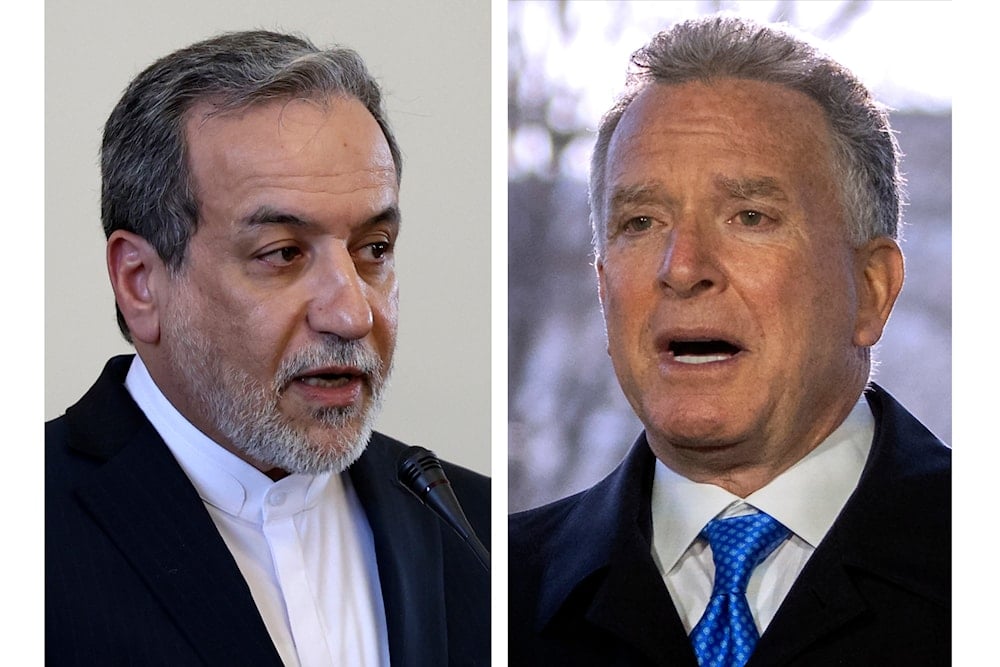Poll: Americans overwhelmingly prefer diplomacy with Iran
A new national poll shows growing bipartisan support for diplomacy with Iran, as nearly two-thirds of Republicans join most Americans in rejecting military action over Tehran’s nuclear program.
-

This combo shows Iranian Foreign Minister Abbas Araghchi, left, pictured in Tehran, Iran, on Feb. 25, 2025, and Steve Witkoff, right, White House special envoy, pictured in Washington, on March 19, 2025. (AP/Mark Schiefelbein)
As Washington continues its diplomatic efforts with Tehran, a new poll reveals that a strong majority of Americans, including nearly two-thirds of Republicans, favor diplomacy over military action when it comes to Iran’s nuclear program.
The University of Maryland’s Critical Issues Poll, conducted by SSRS from May 2 to 5, surveyed over 1,000 US adults. The results show that 69% of respondents support a negotiated agreement to limit Iran’s nuclear activities with accompanying international monitoring.
Among Republicans, 64% expressed support for this approach, underscoring a growing trend of Republican support for Iran diplomacy.
While Republican leaders have often taken a hardline stance toward Iran, the poll suggests that GOP voters may be more open to a diplomatic resolution than previously assumed. Only 24% of Republicans backed the idea of military action to limit or eliminate Iran’s nuclear capabilities, significantly lower than expected given past rhetoric from Republican administrations.
Among Democrats, support for diplomacy was even stronger, with 78% favoring a negotiated deal over confrontation.
Military action finds little support among the US public
Overall, only 14% of Americans favored a military approach to curbing Iran’s nuclear ambitions, according to the Critical Issues Poll on Iran. The data indicates a clear bipartisan preference for resolving the issue through diplomacy rather than conflict, a message likely to influence ongoing US-Iran relations.
The poll also explored views on nuclear weapons in the Middle East, revealing that 70% of respondents believe the region would be “least dangerous” if neither "Israel" nor Iran possessed nuclear arsenals.
While "Israel" has never formally acknowledged its nuclear capabilities, it is widely believed to possess around 90 warheads, with some estimates suggesting up to 400.
This concern over proliferation adds urgency to the push for a durable agreement with Tehran that satisfies regional and international security interests.
Despite public support for negotiations, significant challenges persist in the ongoing Iran nuclear negotiations. Iranian Foreign Ministry spokesperson Esmaeil Baghaei characterized the latest round of discussions as “difficult” but “useful,” noting that they helped both sides “better understand each other’s positions.”

 2 Min Read
2 Min Read










